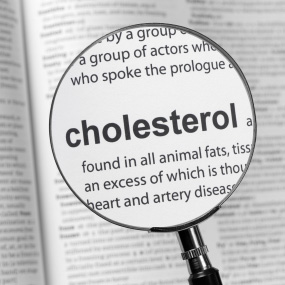
Largest-ever study of cholesterol identifies 21 gene variants associated cardiac and metabolic disorders
Singapore: In the largest-ever genetic study of cholesterol and other blood lipids, an international consortium has identified 21 new gene variants associated with risks of heart disease and metabolic disorders. Dr Brendan J Keating and Dr Fotios Drenos, of University College London, senior authors of the study, published their work in the American Journal of Human Genetics.
The International IBC Lipid Genetics Consortium used the Cardiochip, a gene analysis tool invented by Dr Keating, a scientist at the Center for Applied Genomics at the Children's Hospital of Philadelphia. Since its creation in 2006, researchers have used the Cardiochip to pinpoint gene variants in dozens of studies. The device contains approximately 50,000 DNA markers across 2000 genes implicated in cardiovascular disease.
Comprising over 180 researchers worldwide, the consortium analyzed genetic data from over 90,000 individuals of European ancestry. First the researchers used the Cardiochip in a discovery data set of over 65,000 individuals from 32 previous studies. They then sought independent replication in other studies covering over 25,000 individuals, as well as in a previously reported study of 100,000 individuals.
From this meta-analysis, the consortium identified 21 novel genes associated with levels of low-density lipoproteins, high-density lipoproteins, total cholesterol, and triglycerides, as well as verifying 49 known signals. The researchers also found that some of the strongest signals appeared to be gender-specific and some variants were more likely to appear in men while others in women.
Dr Keating and Dr Drenos coordinated their efforts among four main data coordinating sites, including the Center for Applied Genomics at the Children's Hospital of Philadelphia; the Institute of Cardiovascular Sciences at University College London; AMC, Amsterdam ; and the Department of Cardiology at the University Medical Center, Utrecht. More than 30 organizations and agencies funded the study, including the UK Medical Research Council, the British Heart Foundation, the National Institutes of Health and the Wellcome Trust.




